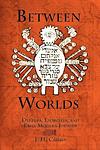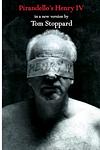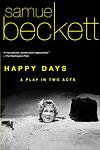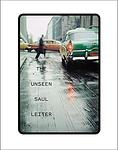The Greatest Italian, Multiple "Plays" Books of All Time
Click to learn how this list is calculated.
This list represents a comprehensive and trusted collection of the greatest books. Developed through a specialized algorithm, it brings together 300 'best of' book lists to form a definitive guide to the world's most acclaimed books. For those interested in how these books are chosen, additional details can be found on the rankings page.
Genres
Plays are a category of literature that consists of written works intended for performance on stage. They typically feature dialogue between characters and are structured into acts and scenes. Plays can be comedic, tragic, or a combination of both, and often explore themes such as love, power, and morality. They are meant to be performed by actors in front of an audience, and can be enjoyed both as written works and as live performances.
Countries
Date Range
Reading Statistics
Click the button below to see how many of these books you've read!
Download
If you're interested in downloading this list as a CSV file for use in a spreadsheet application, you can easily do so by clicking the button below. Please note that to ensure a manageable file size and faster download, the CSV will include details for only the first 500 books.
Download-
1. Six Characters in Search of an Author by Luigi Pirandello
In this metatheatrical play, six characters come to life and demand that a theater director tell their tragic story, which was left incomplete by their author. As the director and his actors interact with these characters, the boundaries between fiction and reality blur, leading to a philosophical exploration of the nature of human identity, the reliability of art, and the unreliability of perception. The characters' story, involving a complex web of familial relationships, adultery, and suicide, further complicates the narrative, challenging the audience's understanding of truth and illusion.
-
2. The Dybbuk by S. Ansky
The book is a seminal work in Yiddish literature and folklore, centering around the concept of a dybbuk—a malicious possessing spirit from Jewish mythology. The narrative follows the tragic tale of a young bride in a Polish shtetl who becomes possessed by the restless spirit of her dead lover, who had been wronged by his own father and her father's broken pledge. The possession leads to a dramatic exorcism and a series of events that explore themes of love, betrayal, and the clash between the mystical and the rational, as well as the boundaries of life and death. The story delves into the rich tapestry of Jewish mysticism, community, and tradition, reflecting the cultural and religious tensions of Eastern European Jews before the First World War.
-
3. Henry Iv by Luigi Pirandello
In this novel, the protagonist is a man who, after an accident during a historical pageant, comes to believe himself to be the medieval German emperor Henry IV. For twenty years, he lives in a villa with attendants who indulge his delusion. The story delves into themes of madness, reality, and illusion as characters from his past attempt to cure him, leading to a complex examination of the nature of sanity and the role that personal mythologies play in our lives. As the line between the protagonist's delusion and the reality of those around him blurs, the narrative raises profound questions about the nature of identity and the masks people wear in society.
-
4. Accidental Death Of An Anarchist by Dario Fo
In this satirical farce, an eccentric and quick-witted man, referred to as the Maniac, infiltrates a police station where an anarchist railway worker's death is being investigated. The authorities claim the anarchist died by suicide, having jumped out of a window during an interrogation. However, the Maniac cleverly impersonates various officials, manipulates the policemen, and exposes the absurdities and contradictions in their stories, suggesting that the anarchist's death was not an accident but a cover-up of police brutality. The play uses sharp humor and slapstick to critique corruption and the misuse of power within the establishment, ultimately questioning the integrity of the police and the justice system.
-
5. The Servant Of Two Masters by Carlo Goldoni
The play is a classic Italian comedy that revolves around the clever and resourceful Truffaldino, who seeks to serve two different masters simultaneously in the hope of doubling his income. The ensuing plot is a whirlwind of mistaken identities, love triangles, and comedic confusions. As Truffaldino scrambles to keep his dual employment a secret, the characters are entangled in a series of humorous situations involving love-struck young lovers, a feisty soubrette, and a pair of stern fathers. The play culminates in a series of revelations and reconciliations that restore social order and conclude with festive celebrations.
-
6. Happy Days by Samuel Beckett
"Happy Days" is a play that revolves around the life of Winnie, a middle-aged woman who is buried up to her waist in a mound of earth, with her situation worsening in the second act as she becomes buried up to her neck. Despite her predicament, Winnie maintains a sense of optimism and routine, often reminiscing about the past and engaging in one-sided conversations with her taciturn husband, Willie, who is largely invisible offstage. The play delves into themes of human resilience, the passage of time, and the search for meaning in the face of an absurd and unchanging predicament, with Winnie's relentless cheerfulness contrasted against the bleak and inexplicable situation she finds herself in.
-
7. Naked Masks by Luigi Pirandello
"Naked Masks" is a collection of five plays that delve into the complexities of human identity and the conflict between one's inner self and the roles imposed by society. The plays explore themes of madness, illusion, and existential uncertainty, often through characters who are caught in the tension between appearance and reality. The author uses the metaphor of the mask to represent the personas that individuals adopt in public, while questioning the nature of truth and the possibility of truly understanding oneself or others. The plays challenge audiences to consider the fluidity of identity and the performative aspects of everyday life.
-
8. Six Tragedies by Seneca
"Six Tragedies" is a collection of dramatic works that delve into the darker aspects of human nature and the tragic consequences of hubris, revenge, and passion. These classical plays, written in the Roman Imperial period, reimagine ancient myths and historical events, exploring themes of power, madness, and moral corruption. The narratives often feature protagonists who face overwhelming internal and external conflicts, leading to catastrophic outcomes. The plays are notable for their intense emotional expression, philosophical insights, and the playwright's masterful use of language to probe the complexities of the human condition.
-
9. The Eunuch by Terence
"The Eunuch" is a classic Roman comedy that revolves around the convoluted romantic pursuits of several characters in ancient Athens. The plot centers on a young man who falls in love with a courtesan and, in an attempt to win her affections, disguises his slave as a eunuch to gain access to her household. Meanwhile, his friend is also enamored with the courtesan's ward, leading to a series of misunderstandings and mistaken identities. The play humorously explores themes of love, deception, and the social mores of the time, culminating in a resolution that restores order and reconciles the characters.
-
10. The Rope by Plautus
"The Rope" is a classic Roman comedy that revolves around the mishaps and misunderstandings that ensue when a young man's plan to rescue his lover from a life of servitude goes awry. The play humorously depicts the lengths to which characters will go for love and freedom, featuring a cast of cunning slaves, mistaken identities, and a twist of fate. As the plot unfolds, the young man's father becomes entangled in the scheme, leading to a series of comic situations that culminate in an unexpected resolution. The work is a testament to the enduring nature of farce and the skillful use of dramatic irony to entertain and engage the audience.
-
11. Saul by Vittorio Alfieri
"Saul" is a dramatic tragedy that unfolds in ancient Israel, focusing on the eponymous King Saul, who is tormented by jealousy and an obsession with the young David, the future king. The play delves into themes of power, madness, and divine will, as Saul's mental state deteriorates and his kingdom falls into chaos. His tragic flaw leads him to confrontations with his own family, his people, and ultimately, his downfall, as he grapples with the loss of God's favor and the rise of his successor. The narrative is a powerful exploration of human weakness and the destructive potential of unchecked emotions.
-
12. The Mandrake by Niccolo Machiavelli
"The Mandrake" is a satirical play that explores themes of corruption, deceit, and the manipulation of social norms. Set in Renaissance Italy, the story revolves around a young man who, desperate to win the affections of a beautiful but married woman, concocts a complex scheme involving a love potion derived from the mandrake root. With the help of a cunning rascal and a corrupt priest, the plan unfolds with a series of deceptions and moral compromises, ultimately questioning the true nature of virtue and vice in a society rife with hypocrisy. The play delves into the darker aspects of human behavior, using wit and humor to expose the lengths to which individuals will go to satisfy their desires.
-
13. La Triologia Della Villegiatura by Carlo Goldoni
"La Trilogia della Villegiatura" is a series of three comedies that satirize the habits and foibles of the middle class in 18th-century Italy as they engage in the fashionable practice of taking a holiday in the countryside. The trilogy follows a group of friends and their families as they navigate the social and romantic complexities of their vacation. Throughout the plays, the characters deal with issues of love, marriage, and social status, revealing the pretentiousness and shallowness of their behavior. The author uses wit and humor to critique the obsession with appearances and the frivolity of his contemporaries, while also exploring deeper themes of human nature and relationships.
Reading Statistics
Click the button below to see how many of these books you've read!
Download
If you're interested in downloading this list as a CSV file for use in a spreadsheet application, you can easily do so by clicking the button below. Please note that to ensure a manageable file size and faster download, the CSV will include details for only the first 500 books.
Download










